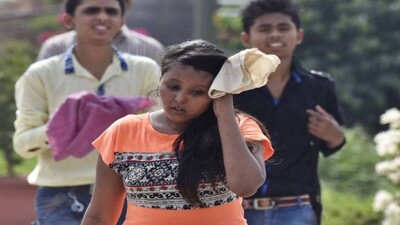Recommended Stories
Veeraputhran-The Legend is a film made by noted film-maker P T Kunhu Mohammed, which has been accused of giving indications that Rahman Sahib was poisoned to death while official history states that he had a natural death.
Writer Hameed Chennamangalur, from whose ancestral family house Rahman Sahib had his last dinner and later collapsed at a nearby market, said the insinuation in the film that his food was poisoned "not only distorts history but defames my ancestors."
Abdul Rahman Sahib died in 1945 at the age of 47 was one of the key leaders of the Congress and Khilafat movement in Malabar in the fight against British rule.
Asked about the row, director Kunhu told PTI that he had not tried to distort history in the movie.
"History is not a monopoly of anyone and there can be different interpretations. I have conducted an investigation in my own style by eliciting views of eminent historians and the local people," he said.
Hameed said such `fake historical biopics` would mislead future generations and wanted the film to be withdrawn from theatres. He was also planning to move court against the director.
He said it was cruel to portray a natural death as murder. The doctor who treated Rahman Sahib had clearly mentioned that he died of heart attack. This fact was also there in the biography of Sahib written jointly by his compatriots," he said.
Indian Union Muslim League MLA K N A Khader also said it was historically incorrect to say that Rahman Sahib was murdered. The suggestion in the movie that Muslim League in pre-independence days had favoured the `two-nation` theory was also factually wrong, he said.
Rahman Sahib was strongly opposed to the two-nation theory. According to historian M G S Narayanan, there were widespread rumours in those days that Rahman Sahib was poisoned. The period he lived was an era of conflict and nothing could be ruled out, he said.
Kunhu Mohammed said he had only taken the liberty of a director.
"A film-maker can view history only in a cinematic way. Controversies on approach to historical facts are nothing new. I have made the film based on a novel on Rahman Sahib`s life by writer N P Mohammed and there can be a fictional element in it," he said.
The director said a legal notice would be sent to Hameed Chennamangalur if he did not stop the `false campaign` against the movie.












